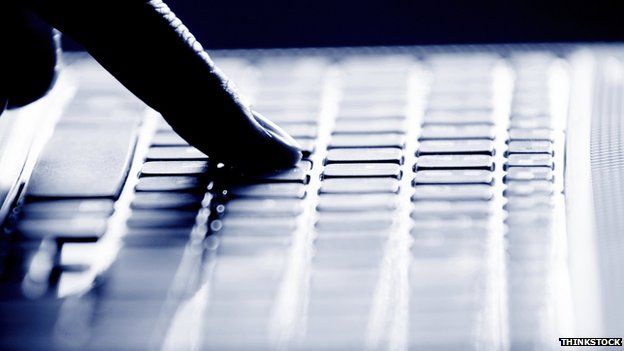Google, Facebook and Twitter to block 'hash lists' of child abuse
- Published

Web giants Google, Facebook and Twitter have joined forces with a British charity in a bid to remove millions of indecent child images from the net.
In a UK first, anti-abuse organisation Internet Watch Foundation (IWF) has begun sharing lists of indecent images, identified by unique "hash" codes.
Wider use of the photo-tagging system could be a "game changer" in the fight against paedophiles, the charity said.
Internet security experts said images on the "darknet" would not be detected.
The IWF, which works to take down indecent images of children, allocates to each picture it finds a "hash" - a unique code, sometimes referred to as a digital finger-print.
By sharing "hash lists" of indecent pictures of children, Google, Facebook and Twitter will be able to stop those images from being uploaded to their sites.
Online security specialists welcomed the move as a positive step, but said it would not block content on the "darknet" - a network with restricted access - where abusers often posted images.
Last year, Prime Minister David Cameron said intelligence experts and organised crime specialists would join forces to tackle child abuse images on the "dark net".
Online child exploitation existed on an "almost industrial scale" worldwide, he said.
- Published14 April 2015
- Published11 December 2014
- Published2 December 2014
- Published3 October 2014